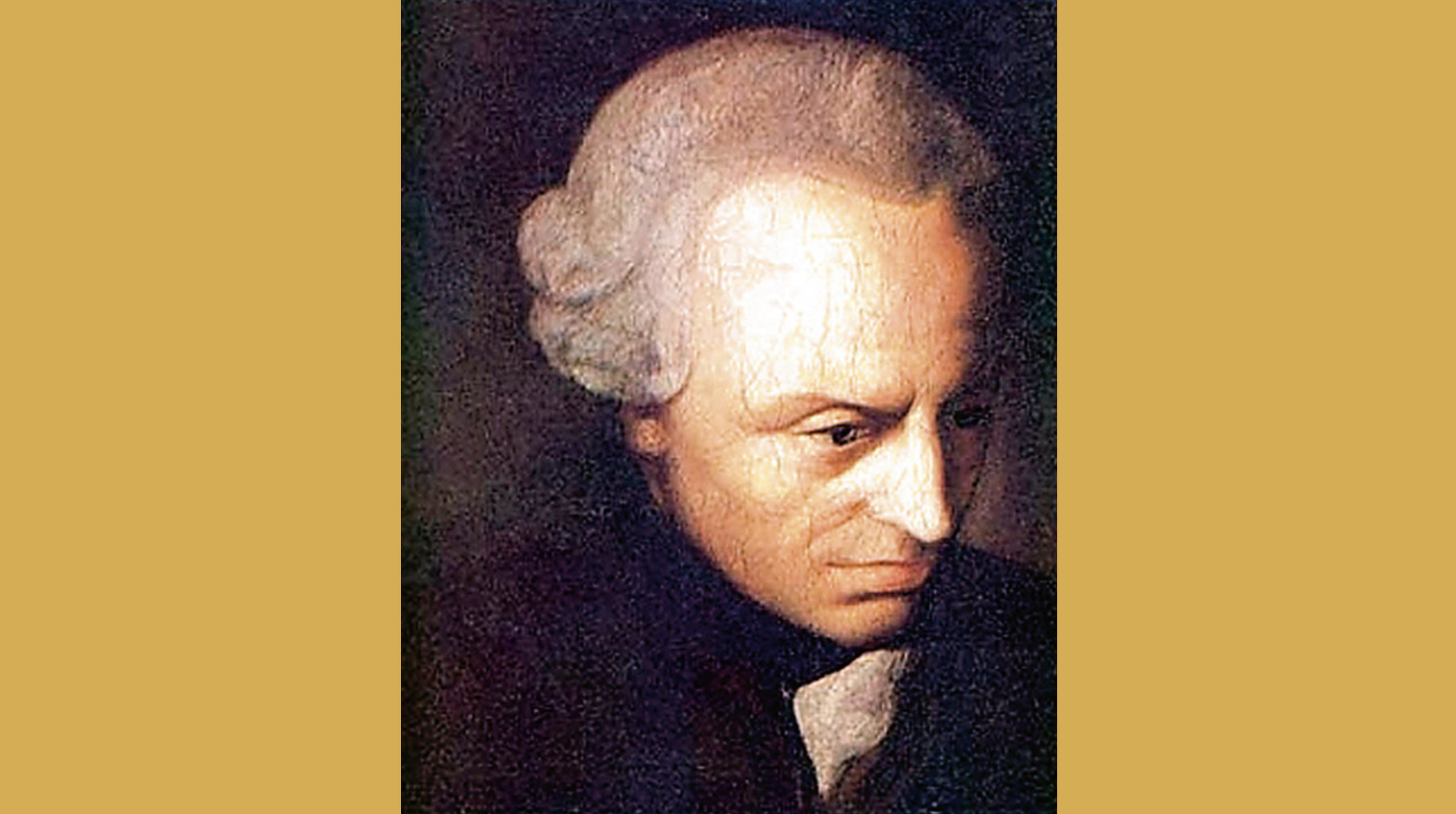Rules-Based Spontaneity
Immanuel Kant (1724-1804) wrote on the nature of intuition, on natural law and human freedom and on the ethics and government of perpetual peace. In short, he outlined an Enlightenment position on human consciousness that forced everyone to notice and either to accept, to extend or to distort. Kant’s basic idea is that reason does all the work of being conscious, that consciousness is forced into the human frame by an ordered set of ideas that work on it as operators. The provenance of these operators seems to be something rigid and topological, perhaps issuing sensibly from the cosmos itself. The human frame is a singular type of bony skeleton containing some metabolic software and responding to an all-pervading, apparently cosmogenic and inwardly illuminated categorical imperative: Figure This Out!
Kant settled almost immediately on a theory of principle. He saw human behavior as something ethical, as something proceeding from an inward sense for concepts, whatever these really are, and their dictates. A concept would be “something universal in the mind that serves as a rule” for that mind’s behavior. This Prussian conception would serve the nascent German state both poorly and well in the two centuries to come. It would also now appear to be a bone of contention between the geopolitical West, which views its own rules-based social order as the only legitimate form of national, international and ultimate world government, and the geopolitical Remainder, which wants to have something to say about what rules really are.
We are floating a behavioral theory of consciousness. We think consciousness is the voice-in-the-head and that this voice, as a deontic principle, is what produces consciousness. We also think this theory is eminently testable. Polygraph, video monitoring and micro expression all come immediately to mind. Such testing however turns both the qualities of the subject and on the set and setting. The problem is the old one, described eloquently by Eliphas Levi in his Doctrine and Ritual of High Magic (p.34):
To learn to overcome yourself is thus to learn to live, and the austerities of Stoicism were not just a vain display of freedom! To give in to the forces of nature is to follow ordinary communal life, it is to be the slave to second causes. To resist nature and overcome it is to create a personal and imperishable life, it is to gain freedom from the vicissitudes of life and of death. Any man who is prepared to die rather than deny truth and justice is truly alive, because in his soul he is immortal. The goal of all ancient initiations was to find or to shape such men.
We think we know how to address both the Problem of the Subject and the Problem of Setting. It’s to get the right people to think about the problem of conversation, the problem of rules-based spontaneity, in the right way, in the right order and inside the right architecture with the right wall coverings.
Currently, there exists no scientifically positive theory of conversation. These people, aided by financial backing and planning of the right sort, should begin, we believe, by contemplating this regrettable and embarrassing fact.
